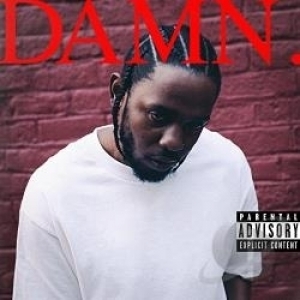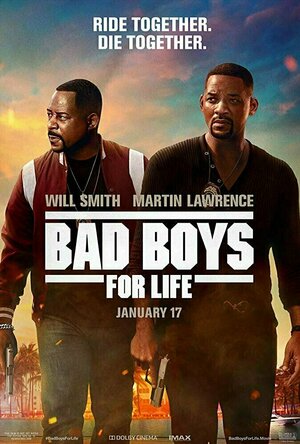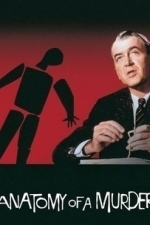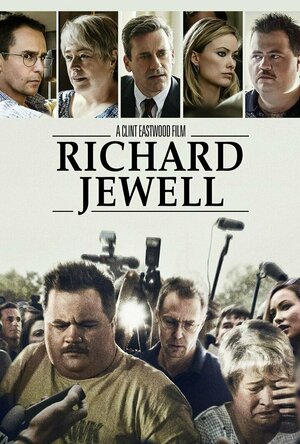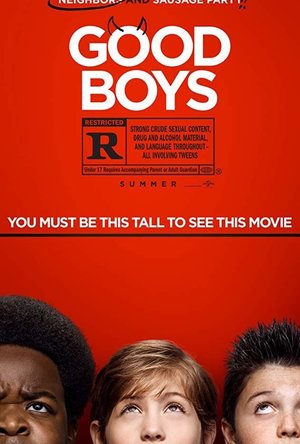Bong Mines Entertainment (15 KP) rated Damn. by Kendrick Lamar in Music
Jun 7, 2019
1) Kendrick Lamar – “BLOOD.”
Lamar tackles the issue of life and death. He poses several questions over a melodic instrumental produced by Lamar, Bēkon, and Anthony “Top Dawg” Tiffith. One of them being, “Are we gonna live or die?” Lamar tells a brilliant story about him walking down a block, and he sees a blind lady in search of something she had lost. He goes over to help, and then he asks, “Hello, ma’am, can I be of any assistance? It seems to me that you have lost something. I would like to help you find it.” She replied, “Oh yes, you have lost something. You’ve lost your life.” And then we hear a gunshot. Lamar is shot. Did he lose his life? The dire ending answers the probing question posed in the beginning—we gonna die.
2) Kendrick Lamar – “DNA.”
Lamar explains why his DNA differs from a sucker’s DNA. His deoxyribonucleic acid consists of going through the school of hard knocks. He endured a rugged street life, prisons, money, drugs, alcohol, sex, murder, mayhem, loyalty, royalty, joy, etc. This is because his DNA comprises of things shared collectively by African-Americans who have been through the struggle. Lyrically, Lamar leaves earth, while rapping over an explosive track produced by Mike WiLL Made-It. From beginning to end, he doesn’t take a bar off and shows why conscience rap has resurrected into the new norm.
3) Kendrick Lamar – “YAH.”
Lamar let it be known that he’s diagnosed with real ni^^a conditions, and keeps it a hunnit by calling out Geraldo Rivera because of criticism Lamar received from a FOX NEWS segment. The kid Capri intro adds a classic east coast authenticity over a laid-back track produced by Bēkon, Anthony “Top Dawg” Tiffith, Sounwave, and DJ Dahi. Preconceived lies told by White slave masters to African slaves are melting like hot butter in the sun. Lamar, a descendant of those slaves, has awakened and knows himself.
4) Kendrick Lamar – “ELEMENT.”
Lamar, who Capri calls the ‘New Kung Fu Kenny’, continues his Shaolin-rap assault over a Wu-Tang-like track produced by Bēkon, Tae Beast, James Blake, Sounwave, and Ricci Riera. Lamar is simply on another level than his peers. He’s been through more sh*t than them, and he’s ready to put the Bible down and go eye for an eye for this sh*t. When he said, “I been stomped out in front of my mama / my daddy commissary made it to commas / B*tch, all my grandmas dead / So, ain’t nobody prayin’ for me, I’m on your head.”
5) Kendrick Lamar – “FEEL.”
Lamar beautifully expresses how he feels on a dope Sounwave-produced track, where Lamar raps, “I feel like the whole world want me to pray for ’em / But who the f*ck prayin’ for me?” Lamar feels that nobody ain’t prayin’ for him, and this void has him with a chip on his shoulders, looking at life from a dark, and troubled point of view. He feels pain and doesn’t see hope. Did the incident with the blind lady cause him to feel this way? Why does he feel this way? Kendrick raps, “I feel like it ain’t no tomorrow f*ck the world / The world is endin’, I’m done pretendin’… I feel like this gotta be the feelin’ what ‘Pac was…”
But Lamar knows ill-thinking is bad for his health, and he acknowledges the source of his negative thinking, “The feelin’ is toxic, I feel like I’m boxin’ demons / Monsters, false prophets schemin’,” and the list goes on and on. If no one is, just know that we are praying for you Kendrick, YAH-willing.
6) Kendrick Lamar – “LOYALTY” (FEAT. RIHANNA.)
Lamar and Rihanna explore one of the key elements in Lamar’s DNA, loyalty; and they pose a simple question—who are you loyal to? Is it your family? Friends? Or yourself? Maybe it’s money, weed, or alcoholic? Where does it begin and where does it end? Lamar and Rihanna do a wonderful job over a beautify track produced by Anthony “Top Dawg” Tiffith, Terrace Martin, Sounwave, and DJ Dahi.
7) Kendrick Lamar – “PRIDE.”
The Steve Lacy’s intro, “Love’s gonna get you killed, but pride’s gonna be the death of you and me,” fits perfect in the scheme of things. Lamar, a spiritual intellectual, understands Proverbs 16: 18, which states, “Pride goes before destruction, and a haughty spirit before a fall.” So, Lamar uses those reference points to further expound his faith. In the beginning, Lamar’s love for the blind lady got him shot. And now, will his pride, the great satisfaction he feels when he reviews all that he has achieved, will that be the death of him? Over a smooth/laid-back track produced by Bēkon, Anthony “Top Dawg” Tiffith, and Steve Lacy, Lamar states that he can’t fake being humble, just because people are insecure.
He answers the question of pride
Lamar raps, “Sick venom in men and women overcome with pride. A perfect world is never perfect, only filled with lies. Promises are broken and more resentment come alive. Race barriers make inferior of you and I. See, in a perfect world, I’ll choose faith over riches. I’ll choose work over b*tches, I’ll make schools out of prison. I’ll take all the religions and put ‘em all in one service. Just to tell ’em we ain’t sh*t, but He’s been perfect.”
If Lamar maintains his Israelite faith over riches, and keep that equation as the top priority, he won’t be a victim of pride. But the question is—can Lamar remain humble amidst all the madness?
8) Kendrick Lamar – “HUMBLE.”
Lamar shows that being humble is easier said than done. Over a bouncy-head-nodding track produced by Mike WiLL Made-It, Lamar speaks his mind and gives zero f*cks on what people think about him. He’s braggadocios, confident, and asserts himself as the king of rap music. He sends a cryptic message to his competition, “Watch my soul speak, you let the meds talk. If I kill a ni^^a, it won’t be the alcohol. I’m the realest ni^^a after all, b*tch, be humble.”
9) Kendrick Lamar – “LUST.”
Lamar tackles the issue of lust, one of the main causes that fuel what we do. He begins by creating a scene, where lust has him trying to stick the tip of his phallus inside a woman’s vagina. She agrees, causing blood to run through his favorite vein. His logic, it doesn’t matter what you do—just make it count.
So, over a chilled- track produced by BADBADNOTGOOD, Sounwave, and DJ Dahi, Lamar raps, “Hop in the shower, put on your makeup, lace your weave up. Touch on yourself, call up your ni^^a, tell him he ain’t sh*t. Credit card scam, get you a Visa, make him pay your rent. Hop on the ‘Gram, flex on the b*tches that be hatin’ on you. Pop you a pill, call up your b*tches, have ‘em waitin’ on you. Go to the club, have you some fun, make that ass bounce. It’s whatever, just make it count.”
10) Kendrick Lamar – “LOVE.” (FEAT. ZACARI.)
Lamar turns the lights down over a contemporary R&B love song, produced by Anthony “Top Dawg” Tiffith, Greg Kurstin, Sounwave, and Teddy Walton. The theme of love and lust continues, but this time, into a more unchartered direction. Zacari’s melodic cadence compliments Kung Fu Kenny’s intimate love-lyrics to the love of his life, probably his fiancé Whitney Alford, Lamar’s high school sweetheart.
11) Kendrick Lamar – “XXX.” (FEAT. U2.)
Lamar gets political over an NWA-type track produced By Bēkon, Anthony “Top Dawg” Tiffith, DJ Dahi, Sounwave, and Mike WiLL Made-It. The theme is America and the plight and strife of young African-American males trying to make ends meet. Lamar talks about a man who calls him, needing prayer and advice because his son had been murdered. He wants to know what to do and seeks advice from Lamar because he’s anointed.
But Lamar doesn’t sugarcoat his advice. He tells the man straight up, “If somebody kills my son, that means somebody’s gettin’ killed.” Then, Lamar goes on to tell the man how he would go about doing the killing. America is an eye-for-an-eye nation, and forgiveness is hardly practiced.
12) Kendrick Lamar – “FEAR.”
Lamar deeps dig into his soul to confront his fears. He does so over a conversation track produced by The Alchemist. Lamar uses Deuteronomy 28:28 to make sense of his damnation, where the title track derived from. “The Lord shall smite thee with madness, and blindness, and astonishment of heart…,” states the biblical commandment. Lamar reasons that YAH cursed the Israelites (so-called Blacks, Hispanics, and Native American Indians) because of their iniquity. So, that explains their conditions in the wilderness of North America.
Pride
So, Lamar’s fear of lose it all like the biblical character forced him or scared him to not spend a dime. Not because he is cheap, but because he didn’t want to spend money because he feared running out of money, and going back to Section 8. Lamar raps, “30 shows a month and I still won’t buy me no Lexus.” Not a lot of people can say this.
13) Kendrick Lamar – “GOD.”
Lamar talks about the success that he doesn’t want to lose. He compares it to what it was like when he didn’t have fame and fortune. Even though he chooses faith over riches, he’s still feeling good laughing to the bank like aha. Over a laid-back track produced by Bēkon, Anthony “Top Dawg” Tiffith, Cardo, Sounwave, Ricci Riera, and DJ Dahi, Lamar tells listeners, “Don’t judge me,” because this is what God feels like. Matthew 7:1 states,
14) Kendrick Lamar – “DUCKWORTH.”
Lamar uses his last name, Duckworth, as a song to explain the relationship between his father, Ducky, and Anthony Tiffith, CEO of Top Dawg Entertainment. Lamar explained if Tiffith had killed Ducky, then he would be serving life, and Lamar would’ve grown up without a father. And there would have been no Top Dawg Entertainment, and probably no Kendrick Lamar.
Bob Mann (459 KP) rated Bad Boys for Life (2020) in Movies
Mar 9, 2020
Perhaps it's for this reason that Smith reached for an old and reliable property to dust off for another outing.
And, do you know, it's not half bad.
I only recently saw this one, right at the end of its UK cinema run, because frankly it appealed to me like being hit round the head with a cold fish. Martin Lawrence is an actor who just grates on me enormously. I'm sure he's a lovely chap; kind to animals; donates to charity; etc - but I generally just don't find him funny. (Here though he has a killer line about condom use that made me chuckle.) It feels to me like he is on implausible ground here re-treading the role of aging detective Marcus Burnett. One look at Burnett lumbering along and you would think "well, he'd never pass the medical" for the on-street role he's portrayed doing. His buddy is detective Mike Lowrey (Will Smith), who has a sordid past that is set to catch up on him.
Since we start the story in Colombia, where Isabel Aretas (Kate Del Castillo), the witchy wife of a notorious deceased drug baron, is sprung from prison by her son Armando (Jacob Scipio) in what I admit is a clever and novel way. The Aretas family is bent on revenge - - and a key target in their sites is Lowrey.
Burnett is newly a grandparent and hell-bent on retirement. But with Lowrey and his associates with a target on their backs, will there be one last chance to "Ride Together, Die Together"?
Not seen the first two movies? Not to worry! There are movies, like LOTR, where if you've missed the first two movies in the series you will be left in serious "WTF" territory in trying to watch the third. This is not one of those movies. The story is entirely self-contained, and refers to events never seen prior to the first film in the series.
But whether the movie is for you will depend on your tolerance for loud and brash visuals and music with the knob turned up to 12. Directors Adil and Bilall (Adil El Arbi and Bilall Fallah - Belgian film school buddies best known for the critically acclaimed 2015 feature "Black") - don't do anything by halves.
There is a scene in "Lost Series 3" in which Sawyer, Kate, and Alex have to bust young Karl out of the mysterious room 23 where he is being tortured by having his eyes kept open while watching a collage of images continually smashed into his eyeballs. This movie feels a little like that after a while.
This is not by any means a criticism that it's poorly done. There is some truly stunning cinematography of the Miami skyline by Belgian cinematographer Robrecht Heyvaert, including a 'pull-back' drone shot from a conversation on the top of a building that is quite AWESOME! And there are more than enough "fast action - then slo-mo - then fast again" shots to keep music-video junkies happy!
The music score by Lorne Balfe is also pumping, adding a dynamism to the frantic action scenes that keeps you entertained.
The screenplay by Chris Bremner, Peter Craig and Joe Carnahan is assuredly familiar: it's not going to win any prizes for originality. We've seen the cartel/revenge plotline played out in multiple movies over the years. And we've also seen the "buddy cops with aging partner taking retirement" angle from the "Lethal Weapon" series. This just sticks them together.
Will Smith and Martin Lawrence wise-crack their way through the comedy well-enough, though for me it never reaches the heights of the pairing of Smith and Tommy Lee Jones from MiB (or indeed Mel Gibson and Danny Glover from Lethal Weapon). Elsewhere we have Vanessa Hudgens as a cute cop, still trying to break through from "Disneyfication" into mainstream flicks. For one horrible moment, when I saw her name on the cast, I thought she might be the love interest to Smith. But no. That honour goes to Mexican beauty Paola Nuñez who, with only a 10 year age gap, becomes a less gag-worthy pairing. She plays a female leadership role (every 20's film now needs one) as the head of a new crime division.
Also good value is Joe Pantoliano reprising his role as Captain Howard - Lowrie's exasperated boss. Playing it by the numbers, every film like this has to have one!
Where the plot does add some interest is in a surprising scene mid-film and a twist that I didn't see coming. But this twist felt - in the context of the release date or the film - like a mistake (a "Spoiler Section" in my review on the One Mann's Movies web site discusses this).
All of this happens of course against a backdrop of a body count of bad guys being killed in ever more graphic and gory ways, while the good guys generally dodge every bullet, grenade and crashing helicopter heading their way.
It's that time of year when films are released to die. Where studios drop their movies that are never going to trouble the Academy and are not deemed worthy of summer or even late spring release. But they should have had more faith in this one, for it's not half bad. True, you may need a couple of paracetamols afterwards, but if your corneas and ear-drums can stand the pace, its not short on entertainment value.
(For the full graphical review, check out the One Mann's Movies link here - https://bob-the-movie-man.com/2020/03/08/one-manns-movies-film-review-bad-boys-for-life-2020/ ).
BankofMarquis (1832 KP) rated Anatomy of a Murder (1959) in Movies
Nov 30, 2018
Directed by the great Otto Preminger, AOM is often referred to as the finest courtroom drama ever filmed. While I need to give that some thought, I will say AOM is right up there as one of the finest examples of a courtroom drama.
Starring Jimmy Stewart as "country lawyer" Paul Biegler, who is brought in to defend Army Lieutenant Manion (Ben Gazzara). Manion is accused of murdering a man that raped his wife (Lee Remick). The central mystery isn't "did Manion kill the man" (he did), it is more of "did he kill his wife's rapist or lover" and "will Biegler get away with the temporary insanity plea".
This is the kind of plot that we've all seen a dozen times on standard TV shows, but back in 1959, this type of film - and trial - was quite new and fresh and this film was "scandalous" in it's use of frank language. Remember, this is 1959 in Eisenhower "Happy Days" Americana, so hearing words like "bitch, panties, penetration, slut, sperm, bitch and slut" was quite shocking and led to many protests of the film.
Those who were turned off by the language and frankhandling of the subject matter lost out on an intriguing, well-acted, well-written and well-directed courtroom drama, where the verdict is up in the air right up until the foreman of the jury says "We, the jury, find the defendant..."
Jimmy Stewart is perfectly cast in the lead role of Defense Attorney, Biegler. Stewart brings an instant likableness and every man integrity quality to the role. His Attorney is down-to-earth but whip-smart, able to crack a joke to lighten the mood or explode in rage at an affront at a moment's notice. He goes toe-to-toe with Prosecuting Attorney Claude Dancer (a VERY young George C. Scott). Dancer is everything that Biegler is not, crisp, well-polished and arrogant. While it would have been very easy to paint these two characters as good (Stewart) and bad (Scott), Director Preminger and screenwriter Wendell Mayes shy away from this and show these two as fierce competitors playing a very serious game of chess - and this works very well, indeed. Both Stewart and Scott were nominated for Oscars for their work as Best Actor and Supporting Actor respectively.
The Supporting cast is superb, featuring such 1950's/early 1960's stalwarts as Arthur O'Connell (also Oscar nominated as Stewarts's alcoholic law mentor), the always good Eve Arden, Orson Bean and Katherine Grant. It also features three character actors in small roles (witnesses in the trial) who you would recognize from other things - Murray Hamilton (the Mayor in Jaws), Howard McNear (Floyd the Barber from Mayberry) and Joseph Kearns (Mr. Wilson in Dennis the Menace).
Special notice needs to be made for Lee Remick as the sultry and flirtatious woman at the core of the film. Remick is superb in this role, and that is fortunate, for if she wasn't believable in the "would she or won't she" role that she is asked to play, then the film could have easily fallen apart. But the real bright spot in this film is the scene stealing Joseph N. Welch as the Judge in the case. His performance as the judge is the perfect "third leg" to the Stewart/Scott stool, balancing charm, folksiness and strength in even portions (depending on what is needed to balance the other two).
Otto Preminger (LAURA, STALAG 17) is a Director who's name is beginning to fade into the dust of the past - and that's too bad, for he is a strong director who knows how to frame a scene and pace a film. Even though AOM is 2 hours and 40 minutes of talking, it never feels long or slow.
Two other aspects of this film need to be mentioned - the "jazz" score by the great Duke Ellington (which won a grammy) is perfectly suited to the themes and mood of this film and the opening title sequence (and movie poster) is reminiscent of an Alfred Hitchock film - and that is because they are done by frequent Hitchock contributor Saul Bass.
Nominated for 7 Oscars (it won zero, falling to the juggernaut that was BEN HUR that year), ANATOMY OF A MURDER is an intriguing courtroom drama that also opens the door to performers of the past. Well worth the time investment, should you run across it (it is frequently shown on TCM).
Letter Grade: A
9 (out of 10) stars and you can take that to the Bank(ofMarquis)
Lee (2222 KP) rated Richard Jewell (2019) in Movies
Jan 15, 2020
We start by getting to know a bit about Richard Jewell (Paul Walter Hauser) and how he eventually found himself working security at such a high profile event. When we first meet Richard, he's working as a supply clerk for a public law firm in 1986. He meets attorney Watson Bryant (Sam Rockwell), who can be heard from across the other side of the office loudly and angrily shouting at somebody on the phone. He's not much friendlier to Richard when he puts the phone down either, discovering that Richard has very kindly replaced some stationery in his desk drawers, and even added some more Snickers bars in there after noticing empty wrappers in Watson's bin. But the pair do eventually build up a good rapport, even sharing an interest in playing video games at a local arcade during their lunch breaks.
Richard eventually leaves the firm to become a security guard at a college. With dreams of some day working his way up into law enforcement, Richard takes his role a bit too seriously, resulting in a number of complaints being made to the dean and his subsequent dismissal. Having moved in with his mother Bobi (Kathy Bates) in Atlanta, Richard lands a job working security at the Olympic games, working alongside police officers in Centennial Park during a number of events. His mother joins him to enjoy a Kenny Rogers concert one night, and then a few nights later Richard gets to work while his favourite group are playing. It's during that time, while trying to move on a group of drunk and rowdy boys, that Richard notices a suspicious backpack beneath a nearby bench. Police are alerted, and the backpack is determined to be carrying a bomb. As Richard and the police officers try to disperse the crowd, the bomb detonates and casualties are much lower than they could have been. Richard is hailed a hero.
As Richard quickly begins appearing on TV, and being offered book deals, the FBI begin their investigation. Agent Shaw (Jon Hamm) was there when the bomb went off and feels responsible for something that happened on his watch, so is determined to find the man responsible. It's not long before they decide that Richard fits the profile of previous bombers - a wannabe police officer who carries out attacks and then seeks fame and glory by helping out his victims. The situation isn't helped when ballsy reporter Kathy Scruggs (Olivia Wilde), who will go to any lengths to get her story, including sleeping around, publishes a front page story declaring Richard to be prime suspect with the FBI. From there, Richard's life, along with his mothers, is sent into turmoil and Richard is forced to contact old friend Watson Bryant to see if he'll help defend him as his lawyer.
The dynamic between Richard and Watson is what really made this movie for me. They're old friends, but clearly two very different people - Watson doesn't take any crap from anyone while Richard is a kindly, thoughtful man who just wants to help everyone, so ends up not doing himself any favours. On one occasion, Watson tells Richard not to say a word while the FBI are searching his home, and then Richard proceeds to talk to them all about anything and everything, blissfully ignorant of the glares he's receiving from Watson. There's a lot of humour in Richard Jewell, which I wasn't really expecting, and while it did make for an enjoyable movie, I felt it detracted a little from the drama and tension at times. Outside of that, both Jon Hamm and Kathy Bates were perfect in their roles, Kathy Bates this week receiving an Oscar nomination for her performance.
As the movie progresses, the injustice of it all is truly incredible. Just by Watson walking the route from the phone-booth where the warning call originated and the location where Richard was when the bomb went off, it was clear that he couldn't have done it. He even passed a polygraph test and yet he still continued to be hounded in the absence of any other leads or suspects, as he was just an easy target. It's an enjoyable watch, and certainly an important story, but because of the humour I described earlier, it just didn't have enough intensity or drama to make a bigger impact on me.

Sing! Karaoke by Smule
Music and Entertainment
App
We all have a voice. Find yours with Sing! Karaoke by Smule. Duet with major artists like Ed Sheeran...

The Strategy Builder: How to Create and Communicate More Effective Strategies
Duncan Angwin and Stephen Cummings
Book
A visual and interactive guide to building and communicating strategies that actually work YOUR...
Gareth von Kallenbach (980 KP) rated Good Boys (2019) in Movies
Aug 16, 2019
Max (Jacob Tremblay), Thor (Brady Noon), and Lucas (Keith L. Williams) are a group of 12-year old boys known to their family and friends as the Bean Bag boys. Why do they refer to themselves as the Bean Bag Boys you ask? Why because they sit on Bean Bag chairs of course. Entering 6th grade they are trying to stand out but tend to do so in all the worst ways. Thor loves to sing but is bullied to not sign up for the school musical because it’s not a cool thing to be. Lucas is dealing with his parent’s new divorce and has a propensity to always tell the truth (even when the truth potentially causes more damage than a lie). Then there is Max, a young man whose hormones are beginning to take over his brain and can only think of the love of his life (and future wife of course) Brixlee.
Max being to shy to even look at Brixlee when she is looking his way is finally given a golden opportunity when he is invited by popular kid Soren (Izaac Wang) to a kissing party. The idea of being able to not only speak to Brixlee but be able to kiss her causes a rush of emotions that gravitate from excitement to terror. Max, believing that the way to his true-loves heart is by being a kissing expert recruits his fellow Bean Bag Boys on a quest to learn to kiss.
His quest will take him from spying on his “nymphomaniac” neighbor, to a treacherous highway crossing to get to the mall. They will have to brave frat houses, and potentially risky run-ins with pedophiles and the police, all to learn how to be a better kisser. Of course, there is plenty of laughs and situations that only naïve children could get themselves into, all of which had me and the entirety of the audience laughing the entire way through
Good Boys is a movie that relies on the audience connection with the main characters to succeed. Without that, you are left with a movie full of foul language and crude humor which have lately become a dime a dozen. Thankfully the casting of Good Boys far exceeds any expectations I had going into the theater. Comedies of these type lean heavily on the actors to carry the story through the hi-jinx that are around every corner and the actors were more than up to the challenge. Jacob Tremblay portrays perfectly the fear that every young boy (or girl) goes through when they imagine their first kiss. Keith L. Williams shows the heart break that a young kid goes through when deal with personal tragedy (in this case his parents’ divorce) and yet still remains true-to-himself anyway. Brady Noon excels at his desire to be cool, and still struggle with how coolness affects what he truly loves and wants to ultimately do. All three as a group convincingly take us on a journey that may seem outlandish, yet ultimately feel believable as well.
Good Boys also has a strong supporting cast, that add further dimension to the film. The two “old” girls Lily (Midori Francis) and Hannah (Molly Gordon) are fantastic in their portrayal of two women who simply want their drugs to get high. They will go to almost any lengths to get them back from the boys who stole them and yet end up becoming a bigger part to the film as a whole. Even the well meaning yet clueless parents of Lucas (Lil Rel Howery and Retta) add to the laughs as a couple trying their best to protect their son even as their own lives are driven apart.
Good Boys may come across in previews as a crude comedy with loads of foul language and sexual situations. While at first glance that may be what it is, as you pull back the layers you soon begin to realize that it’s a story, not about the words that are said, but the innocence of youth and what it means to grow apart as friends. The laughs are non-stop and the language excusable because of the innocence of those on the screen who are spouting them. As parents maybe you’d be looking to wash their mouths out with soap, but as the audience you can’t help but think how innocent they truly are. Good Boys is a movie that will resonate with many in the audience, who likely went through some of these very same dilemmas in their own coming of age stories. Maybe not through paintball fights at a frat house, or crossing a busy freeway, but we each have our own unique stories that helped to mold us into who we are today. It’s funny how watching a film like this can make you reminisce on your own experiences, even if it isn’t on the big screen for all to see.
4 out of 5 stars
http://sknr.net/2019/08/14/good-boys/

addappt: Live Contacts+Weather
Social Networking, Business and Stickers
App
PRIVACY (more on addappt.com) - We DO NOT store your address book on our servers. - We DO NOT spam...

Bean Dreams
Games and Entertainment
App
Get ready for the mobile platformer that literally plays like a dream. Bean Dreams is an...
Gareth von Kallenbach (980 KP) rated Bad Santa 2 (2016) in Movies
Jul 12, 2019
It is surprising to say but this sequel to 2003s Bad Santa is even more outrageous and raunchy than the original. Billy Bob Thornton is perfect in this role as a sex crazed and barely functioning alcoholic. Willie is truly the Anti-Santa Claus. But with Thurman having faith in him and in his very out of the box way of trying to do good, you can’t help but root for him to succeed. Kathy Bates performance as a crude as can be equal to Thornton’s character was fun and unexpected. The full cast of characters are all unique and all bring something to the film. The story however is very familiar and not that far off from the first film. There were definitely jokes and plot lines that followed too closely, in my opinion, to the original film. This is definitely not a film for young audiences, as most of the film is profanity laced and full of sexual situations and innuendos. But for the adult audience there are a lot of laughs to be had. For me this was a perfect film to shut off for an hour and a half and just enjoy the craziness happening on screen. It is not an overthought or over complicated film. They took things from the original film that were successful changed them up a little, not enough at some points, and made everything a little more over the top.
I wouldn’t necessarily recommend paying movie theater prices for this film but it is definitely worth a watch for the right audiences.
